
Understanding Canadian Sentiments and Strategies in the Evolving World of Cross-Border Ecommerce
Let’s target the core of cross-border e-commerce for Canadians, outlining how shoppers leverage the global market! What you need to know.
Boost customer experience and reduce support tickets
Realtime order and shipment tracking
Proactive order and shipping notifications
Predictive pre-purchase estimated delivery dates
Self-Serivce branded order tracking
Effortless experience delivered
Make returns profitable and delight customers
Flexibility to define any return destinations & conditions
Simplify returns for your customers and team
Incentivize exchanges over returns
Returns management made easy for your team
Understand why your customers are returning
Unify the online and the in-store experience
Hassle-free pickup experience for customers
In-Store Dashboard to keep operations streamlined
In-Store and Online orders unified
Drive foot-traffic to your stores
Boost customer experience and reduce support tickets
Realtime order and shipment tracking
Proactive order and shipping notifications
Predictive pre-purchase estimated delivery dates
Self-Serivce branded order tracking
Effortless experience delivered
Make returns profitable and delight customers
Flexibility to define any return destinations & conditions
Simplify returns for your customers and team
Incentivize exchanges over returns
Returns management made easy for your team
Understand why your customers are returning
Unify the online and the in-store experience
Hassle-free pickup experience for customers
In-Store Dashboard to keep operations streamlined
In-Store and Online orders unified
Drive foot-traffic to your stores
Find the answer to all your questions
Explore the most comon questions about WeSupply
Calculate the ROI that WeSupply can bring you
Request a no strings attached review of your current shopping experience and missed conversion opportunities
Take a step by step trip through our functionality to see how we can improve your ecommerce processes.
Read actionable articles on how to optimize your post-purchase experience and decrease support tickets
Get inspired by stories of how our customers implemented an effortless post-purchase experience
A Deep Dive into Top Companies' Order Tracking & Returns Strategy
Wondering if WeSupply is a good fit for you? Read through our use cases to see how we can help you increase conversion & improve CX!

In the competitive world of online business, understanding how to choose niche ecommerce is crucial for success. This article cuts through the noise to provide a clear path to identifying a niche that’s not only profitable but also aligns with your passion. Dive in to learn about market analysis, personal interests examination, and quick validation practices that will guide your decision-making process – positioning your ecommerce venture for growth.
Identifying a profitable niche is essential to succeed in the competitive ecommerce landscape by offering specialized products, fostering a loyal customer base, and standing out from major players.
Personal passion and expertise are key components in creating a sustainable niche ecommerce business, enabling you to resonate with your audience and deliver targeted, effective marketing.
Continuously adapting to market trends, consumer behavior, and evolving niches, combined with strategic planning and a unique value proposition, is crucial for building and maintaining a successful niche ecommerce business.
WeSupply elevates your niche ecommerce store by streamlining returns and fostering customer loyalty with its suite of features—from instant credit and branded returns portals to QR code labels and proactive communication. Enhance your post-purchase experience to stand out in your niche. Ready to elevate your store’s experience? Get started with WeSupply today!
Finding your niche in the ecommerce world is like finding your voice. It’s about identifying a specialized segment of the market that you can cater to more effectively than competitors. This is especially relevant in the context of large marketplaces like Amazon and eBay, where niche ecommerce businesses can attract customers without spending a massive amount on advertising by focusing on distinct segments.
The allure of niche ecommerce comes from the potential to uncover lucrative sectors that may have been overlooked. By offering niche products, businesses can cater to particular interests or needs, thereby fostering a loyal customer base. Moreover, specializing in a niche can offer opportunities to stand out, making your brand more visible and recognizable to your target audience.
The competitive ecommerce landscape of today sees businesses progressively achieving success through a focus on niche markets. By catering to a dedicated customer group’s unique needs and interests, niche ecommerce stores can effectively differentiate themselves from competitors, lower advertising costs, and increase their chances of success in their ecommerce store.
The ecommerce landscape is a bustling, competition-rife marketplace. Dominated by major players such as Amazon and JD.com, new entrants may find it challenging to compete without a distinct niche focus. With approximately 2-3 million ecommerce companies operating worldwide, identifying unique niches is crucial for success.
Simultaneously, the ecommerce market is experiencing remarkable growth. Revenue in the global ecommerce market is projected to reach $3,647.00 billion in 2024, with an annual growth rate (CAGR) of 9.83% from 2024 to 2028. Moreover, the number of ecommerce users is expected to amount to 4.5 billion by 2028, demonstrating the expanding customer base in online retail. These trends underscore the potential of ecommerce and the importance of carving out a profitable niche in this dynamic market.
The crucial first step towards launching a successful ecommerce business is identifying a profitable niche. This involves looking for markets with a growing customer base that may have been overlooked by other sellers. A profitable ecommerce niche is a distinct market with specific target customers, making it easier and more cost-effective to drive conversions than in a broad market.
But, how does one discover a profitable ecommerce niche? It’s crucial not to limit oneself to a single product but choose a market that can sustain a range of related products. Moreover, passion and knowledge about the products being sold can make marketing more effective and help identify customer pain points within a niche.
Various factors, including personal interest, market trends, and profitability, must be considered when selecting the right niche. It’s important to ensure there’s a genuine interest in what you’re selling, as this can improve marketing and customer connection. Tools like Google Trends can be used to gauge the level of interest in a niche.
Additionally, conducting keyword research helps determine market demand and the competitiveness of the niche. Finally, selecting products with high profit margins is crucial, especially when dealing with a limited target market.
Another key to identifying profitable ecommerce niches is the analysis of market trends and consumer behavior. Tools like Google Trends can help identify consistent levels of interest in certain niches, indicating a stable market. Meanwhile, researching current trends, like the growing interest in eco-conscious products or the impact of the Covid-19 pandemic on shopping habits, can guide the selection of a profitable niche.
Understanding the shopping habits and preferences of your target market can also assist in identifying profitable niches.
WeSupply offers a robust post-purchase software platform designed to keep your business profitable by ensuring a high return on investment (ROI). By streamlining the entire post-purchase experience, from tracking and notifications to returns and exchanges, WeSupply reduces operational costs and enhances customer satisfaction. This optimization leads to increased customer loyalty and repeat purchases, thereby driving additional revenue. Interested in seeing what ROI WeSupply can bring to your business? Try out their ROI Calculator to explore the potential financial benefits.
When choosing a niche for your ecommerce business, one must not overlook personal interests and expertise. Leveraging your passion can lead to greater commitment and engagement, which is vital when facing challenges within the ecommerce space. Entrepreneurs who align their ecommerce niche with their personal interests are more likely to resonate with their target audience and build a loyal customer base.
A deep personal connection to the niche can enhance the authenticity of the brand, making it easier to differentiate from competitors and connect with customers on a more personal level.
Your personal interests and skills can play a significant role in the success of your ecommerce business. By combining these with market demand, you can lead a more successful and fulfilling ecommerce business. When an entrepreneur has expertise in a specific area, it can lead to a more authoritative and trustworthy brand presence in the market.
Understanding and being skilled in a niche can lead to the creation of more targeted and effective marketing strategies, which are crucial for attracting and retaining customers.
Once a niche that aligns with your passion and exhibits market potential is identified, the next step is idea validation. This involves testing your idea in the market to assess its feasibility and potential for profitability. It’s crucial to validate your niche idea before investing significant time and resources into it, as this can save you from potential losses and help you make informed business decisions.
Validation strategies involve assessing market demand and potential, using buyer personas and SEO data. By understanding the needs and preferences of your target audience, you can tailor your offerings to meet their needs and ensure the viability of your niche idea. Furthermore, SEO data can provide valuable insights into the behaviors and preferences of your target audience, helping you refine your niche idea and marketing strategies.
Assessing market demand and potential can help you determine the viability of your niche idea. You can launch a “one-feature MVP” within a week using a simple landing page and MVP to quickly test market demand.
Additionally, validating a business idea in a niche market requires problem interviews with target customers and engaging in online discussions within the niche to confirm the problem’s existence and significance.
Utilizing buyer personas and SEO data can provide valuable insights into the target audience and help validate the chosen niche. A persona profile is a comprehensive representation of a target customer segment, used to inform content marketing strategies and ensure that the content resonates with the intended audience.
SEO data, on the other hand, can reveal the level of interest and demand for products within a niche, informing the viability of the niche.
Once your niche idea is validated, you can proceed to build your niche ecommerce business. This involves:
Establishing your online store
Creating a memorable brand
Aligning your business with market trends
Continuously adapting to changing market conditions and consumer trends.
Building a successful niche ecommerce business doesn’t happen overnight. It requires strategic planning, continuous learning, and a lot of hard work. However, with the right strategies and a deep understanding of your target audience, you can establish a thriving ecommerce business that stands out in the market.
Several steps are involved in establishing a prosperous niche ecommerce business. Start by narrowing down from general categories to specific niches that resonate with your passion or expertise. Next, assess the demand in the niche market by examining current market trends and compiling a list of preferred niches.
Engage in conversations with individuals who are already operating within the same niche to gather insights and learn from their experiences. Finally, gain a deep understanding of your target audience to tailor marketing and product offerings effectively, ensuring you cater to their specific needs and preferences.
It’s vital to capitalize on current market trends, but ensuring the longevity of your business is equally significant. This requires a balance between staying current and maintaining a long-term vision. You can achieve this by conducting test campaigns to minimize risks and adapt offerings based on customer feedback and market reaction.
By staying adaptable and keeping an eye on evolving trends, you can capitalize on profitable opportunities in the ever-changing ecommerce landscape and effectively sell online.
Content and search engine optimization hold a significant role in the realm of niche ecommerce. Understanding the target audience is key to creating targeted content and SEO strategies that cater to their specific interests. By knowing the audience’s preferences and needs, ecommerce businesses can create content and employ SEO tactics that attract and retain a loyal customer base within their niche.
Having discussed the identification, validation, and building of a successful niche ecommerce business, let’s explore some real-world examples of prosperous niche ecommerce enterprises. These examples provide valuable insights into what makes these niches work and how these businesses have found success in their chosen niches.
From pet supplements brand NutriPaw to men’s grooming product brand BAKblade, these niche ecommerce businesses have carved out their own corners in the market by offering unique products and catering to specific customer needs. Similarly, businesses like A Year of Dates and FLEO Shorts have capitalized on unique gift ideas and the demand for Crossfit apparel, respectively, to create successful ecommerce businesses.
Valuable insights into what makes these niches profitable and sustainable can be gained by analyzing successful niche ecommerce models. These businesses focus on key differentiators that make their products stand out and cater to specific consumer needs. Companies like Dossier and A Year of Dates have used personal hobbies and interests to create profitable business opportunities.
These examples demonstrate the importance of understanding market trends, consumer behavior, and personal passion when selecting a profitable ecommerce niche.
Valuable insights into the strategies and tactics leading to success can be gleaned by learning from the leaders in niche ecommerce. For instance, businesses like Touchland and NutriPaw have capitalized on specific market trends and consumer needs to create unique product offerings. These businesses have also leveraged effective content marketing and SEO strategies to attract and retain a loyal customer base.
These examples underscore the importance of being innovative and responsive to market trends and consumer needs when operating in a niche market, as well as exploring niche ideas.
Despite the significant potential rewards of niche ecommerce, it does pose certain challenges. These include competition, inventory management, and evolving consumer preferences. Overcoming these obstacles requires strategic planning, resilience, and adaptability.
These challenges can be addressed by:
Focusing on creating a unique value proposition
Fortifying customer relationships
Utilizing technology for inventory management
Staying abreast of technological advancements and consumer trends
By addressing these challenges head-on, businesses can increase their chances of success in niche ecommerce.
Addressing common obstacles in niche ecommerce involves strategic planning and proactive measures. To overcome competition, businesses should focus on creating a unique value proposition and building strong relationships with customers.
Meanwhile, effective inventory management involves finding reliable suppliers, implementing inventory tracking systems, and using demand forecasting techniques.
Another significant challenge in niche ecommerce is adapting to ever-changing market conditions and consumer trends. Businesses must:
Stay informed about technological advancements and consumer trends to update their products and services proactively.
Implement agile project management.
Hire a consultant to help businesses stay flexible and innovative, allowing them to adapt to industry changes.
WeSupply stands out as an innovative solution for niche ecommerce businesses, confronting their specific challenges head-on. By focusing on enhancing customer loyalty and streamlining the returns process, WeSupply offers a comprehensive platform that addresses critical aspects of the post-purchase experience. Its key features include:
Branded Returns Portal: Creating a cohesive, branded returns experience that aligns with the omnichannel strategy and boosts customer loyalty.
Self-Service Returns Process: Empowering customers with a seamless returns experience, saving businesses time and resources.
Flexible Returns Rules: Allowing for customized return policies to accommodate various use cases and simplify return logistics.
Customer Return Feedback: Collecting valuable data on return reasons and implementing measures to prevent fraud and abuse, while also optimizing transportation costs.
Autogenerated QR Code Return Labels: Simplifying the return process for customers with easy-to-use QR codes, eliminating the need for printing.
Ease Post-Purchase Anxiety with Returns Tracking: Offering customers the ability to easily track their returns, enhancing transparency and trust.
Proactive Post-Purchase Communication: Engaging customers with timely return notifications and personalized offers via email and SMS to encourage repeat business.
WeSupply’s approach to overcoming ecommerce challenges not only improves operational efficiency but also significantly enhances the customer experience, making it a vital tool for niche online retailers. See the Difference Today: Book Your WeSupply Demo!
Incentivize exchanges over returns
Book a quick call with our experts to see how WeSupply can help you save sales through exchanges and boost the average order value using instant store credit.
As observed, determining the right niche for your ecommerce business necessitates a blend of market analysis, personal passion, strategic planning, and ongoing adaptation. By focusing on a smaller, concentrated group of consumers with distinct needs and preferences, businesses can build a loyal customer base and potentially achieve higher profit margins.
Looking ahead, the future of niche ecommerce is promising, with the emergence of new niches and trends. From digital products and online courses to health and wellness products and subscription boxes, the opportunities in niche ecommerce are vast and varied. However, no matter the niche, the key to success lies in understanding your target audience, offering unique value, and staying adaptable to evolving market conditions and consumer trends.
To succeed in ecommerce niches, a profound understanding of the target audience, a unique value proposition, continuous learning, and adaptability are required. By focusing on a niche market, businesses can build a loyal customer base, differentiate themselves from competitors, and potentially achieve higher profit margins.
With the right strategies and a deep understanding of your target audience, you can carve out your own corner of the ecommerce landscape, catering to an audience with unique interests or needs.
With the emergence of new niches and trends, the future of niche ecommerce is positioned for growth. Some of the best ecommerce niches with potential profitability include:
Digital products and online courses
Health and wellness products
Eco-friendly products
Tech gadgets and accessories
Pet products
Skincare and beauty products
Subscription boxes
However, success in these niches would depend on thorough market research, deep understanding of the target audience, and a unique value proposition.
In this comprehensive guide, we’ve explored the concept of niche ecommerce, the process of identifying a profitable niche, the importance of validating your niche idea, and the steps to building a successful niche ecommerce business. We’ve also looked at examples of successful niche ecommerce businesses and discussed common challenges in niche ecommerce and strategies to overcome them.
As we’ve seen, finding the right niche can be the key to unlocking ecommerce success. With a focus on serving a specific customer group, businesses can stand out in the market, build a loyal customer base, and potentially achieve higher profit margins. So, whether you’re considering starting your own ecommerce business or looking to refine your existing one, remember – the secret to success lies in finding your niche!
Choosing the perfect niche for your online store involves more than just selecting a range of products; it’s about creating an exceptional post-purchase experience that sets your brand apart. Implementing WeSupply can be a game-changer in this aspect. With features like instant credit for exchanges, a branded returns portal, self-service returns, and flexible rules, WeSupply addresses the nuanced challenges niche ecommerce businesses face. It enables you to gather insights through customer return feedback, reduce friction with autogenerated QR code return labels, and keep customers engaged with proactive post-purchase communication. By enhancing the returns process and boosting customer loyalty, WeSupply helps you solidify your position within your chosen niche, making it an essential tool for any online store focused on long-term success and customer satisfaction.
Combat inconvenience with proactivity & self service
Book a quick call with our experts to see how WeSupply can help you make returns easy for your customers with a beautiful, self-service solution that makes their experience easier while also providing new ways to lower costs and earn back revenue.
To choose a niche market for e-commerce, start by understanding your interests and expertise, identifying market demand, assessing profitability, analyzing your target audience, and strategically selecting an e-commerce solution. This will help you find a profitable niche and start selling successfully.
A niche in ecommerce is a specialized segment of the market that caters to a specific group of consumers with unique interests or needs. It allows businesses to focus on a specific market and tailor their products or services accordingly.
WeSupply is versatile and can be tailored to fit a wide range of ecommerce niches. Its customizable features allow you to create a returns experience that aligns with your brand and meets the specific needs of your target market.
Yes, it offers tools to collect and analyze return reasons, providing valuable insights into customer behavior and product performance. This information can help you make informed decisions to reduce returns and improve your product offering.
WeSupply is designed to enhance the post-purchase experience, a critical aspect of customer satisfaction and retention in niche markets. Its features like instant credit for exchanges, branded returns portals, and QR code labels specifically address the unique challenges faced by niche ecommerce stores, making it a key tool in your strategy.
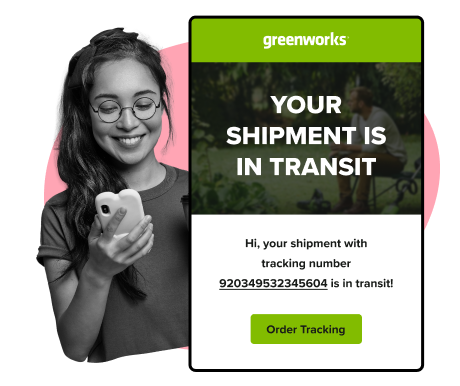
Learn How To Create Successful Post Purchase Email Campaigns
Build an effective post-purchase email flow that helps you increase customer satisfaction and drive revenue growth!

Let’s target the core of cross-border e-commerce for Canadians, outlining how shoppers leverage the global market! What you need to know.
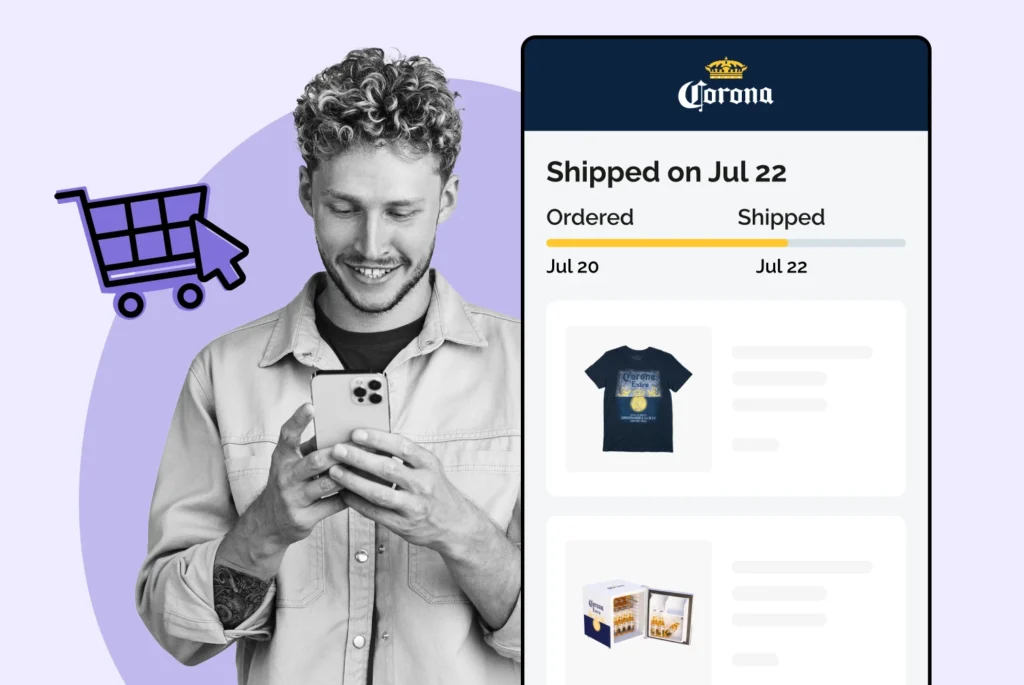
Strategies to navigate and maximize digital sales channels, optimize mobile commerce, and establish a strong direct-to-consumer foundation!

This article will teach you how to grow while staying sustainable as consumers increasingly favor responsible brands.
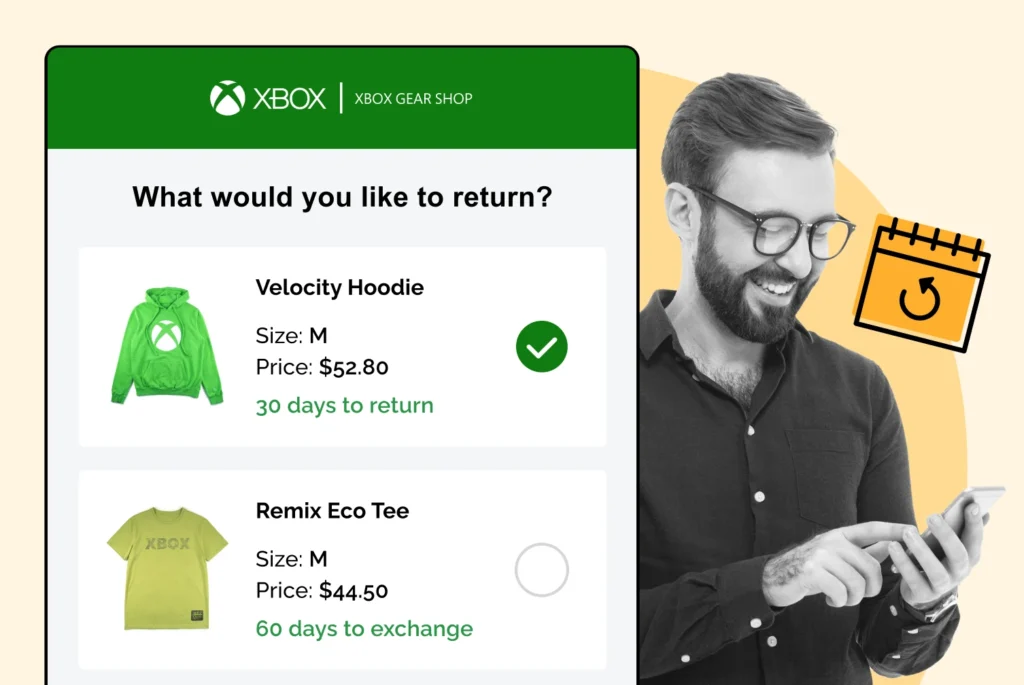
Let’s delve into return windows, their influence on brand loyalty, and the balancing act businesses perform when setting these timeframes.

Effective strategies for mobile return optimized returns in e-commerce: enhance customer satisfaction and streamline your operations!

Elevate your online gift exchange e-commerce operations: proven tactics that enhance customer satisfaction and reduce hassle!
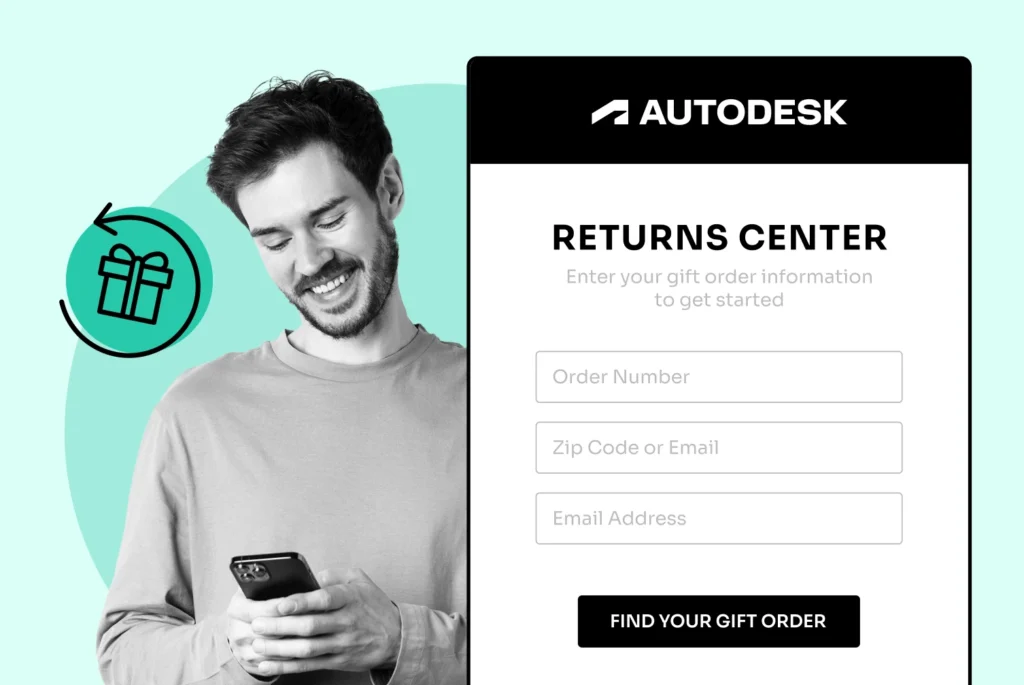
Effortless Online Gift Exchanges: Your Essential Guide Online gift exchanges can be tricky, but with the right approach, they’re a breeze.

Face today’s digital-first marketplace: actionable insights to successfully transition your physical store to a competitive online presence.
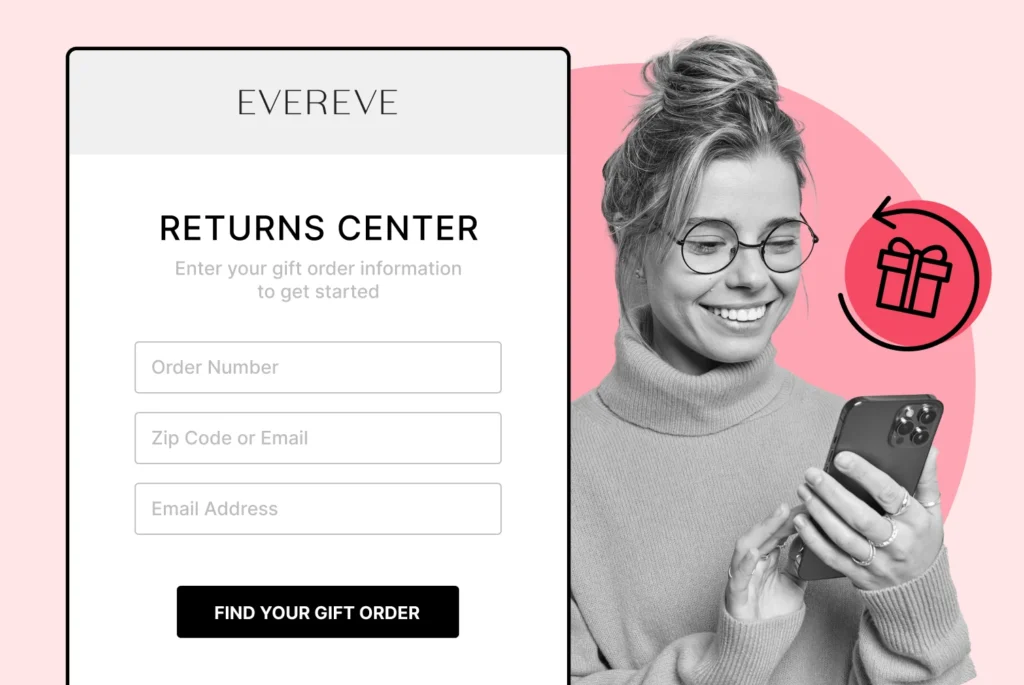
Streamline your process, retain customers, and turn returns into a competitive edge for your e-commerce business!